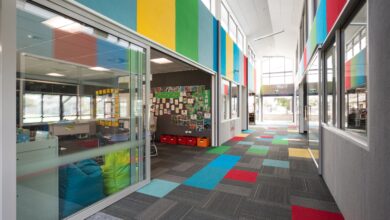Schools focus on academia, not trades

 A Taranaki educationalist believes schools need to do better for their non-university bound students.
A Taranaki educationalist believes schools need to do better for their non-university bound students.
The co-ordinator of Taranaki Futures, Warwick Foy, says secondary schools must provide equitable opportunities for a wider range of students than they do at present.
“We structure our schooling around academic kids yet only about 29 per cent of them go on to university,” he says. “And then too many of them complete varsity with a hangover, a $40,000 debt and a non-vocational degree.
“They’re leaving school and going to university for the experience, not the qualification.”
Mr Foy has long believed that schools “aren’t good enough in providing information about trades-related courses and employment opportunities in the community.
“We simply don’t celebrate these learning styles. Schools are traditionally structured primarily towards academic pathways. For example, we publish newspaper league tables of scholarships but not apprenticeships,” Mr Foy says.
“I am not being critical of schools or careers teachers. I am being critical of the system. I also recognise the schools that are doing good work to correct this. The schools involved in Taranaki Futures are examples of this.”
He has therefore welcomed the Ministry of Education’s Trades Academy structure and Vocational Pathways Programme so much so that, as a senior teacher at Inglewood High, he’s been seconded to Taranaki Futures to establish the Skills Squad Trades Academy in the region.
Arthur Graves, general manager Youth Guarantee, who oversees the Vocational Pathways programme says New Zealand has to improve the rate of NCEA Level 2 achievement, the minimum qualification a young person needs to get to be ready for a better future.
“To get employment you need to get a solid education, achieving at least a minimum qualification, or more.
“New Zealand has poor retention rates of 15-19 year-olds remaining in education to get qualifications and skills that will benefit them and not enough young people progressing to level 4 or above, on the New Zealand qualifications framework.
“Learning in a trades academy gives students real-life skills and qualifications and using the Vocational Pathways young people can choose their study options and see how it relates to future job or career options. Students can get relevant qualifications and a Vocational Pathway, which will set them up for their next steps, whether it’s into tertiary study, industry training or employment.”
The 2014 project for Skills Squad at Taranaki Futures, called Build a Bach, is a collaboration between secondary schools, industry and the Trades Academy at the local polytechnic, Western Institute of Technology (WITT).
The project, which has attracted 19 students from five partner schools, requires them to work with an architect to design a bach and then, in the second and third terms, build it to industry standards.
“We intend the bach to be completed by the end of the year and then sold to kick start next year’s project,” Warwick says. “In doing so students will get tutoring and supervision, hands-on experience, and a passion to take up a trade.”
At the moment the students attend Skills Squad one day a week but, from next term, they will be fully engaged building the bach before returning to school for the final term with credits towards their NCEA Level 1 and 2.
More than 4200 senior secondary schools students, from 264 schools are currently enrolled at a trades academy this year, in 22 secondary-tertiary Programmes throughout New Zealand.
For initial outcomes from these programmes, see the ‘Youth Guarantee Monitoring Report: Impact of Trades Academies & Youth Guarantee Fees-Free Provision on Student Performance’ http://youthguarantee.net.nz/assets/assets/Youth-Guarantee-Monitoring-Report-one-page-for-YG-staff.pdf
The Ministry of Education is holding regional workshops on the Youth Guarantee focused on raising achievement, retention and transitions of young people across secondary schools and tertiary providers. The workshops will discuss initiatives to raise student achievement and develop relevant learning opportunities for students; connecting school, tertiary and future employment. For dates and registrations visit www.youthguarantee.net.nz/home-/workshop-calendar/









